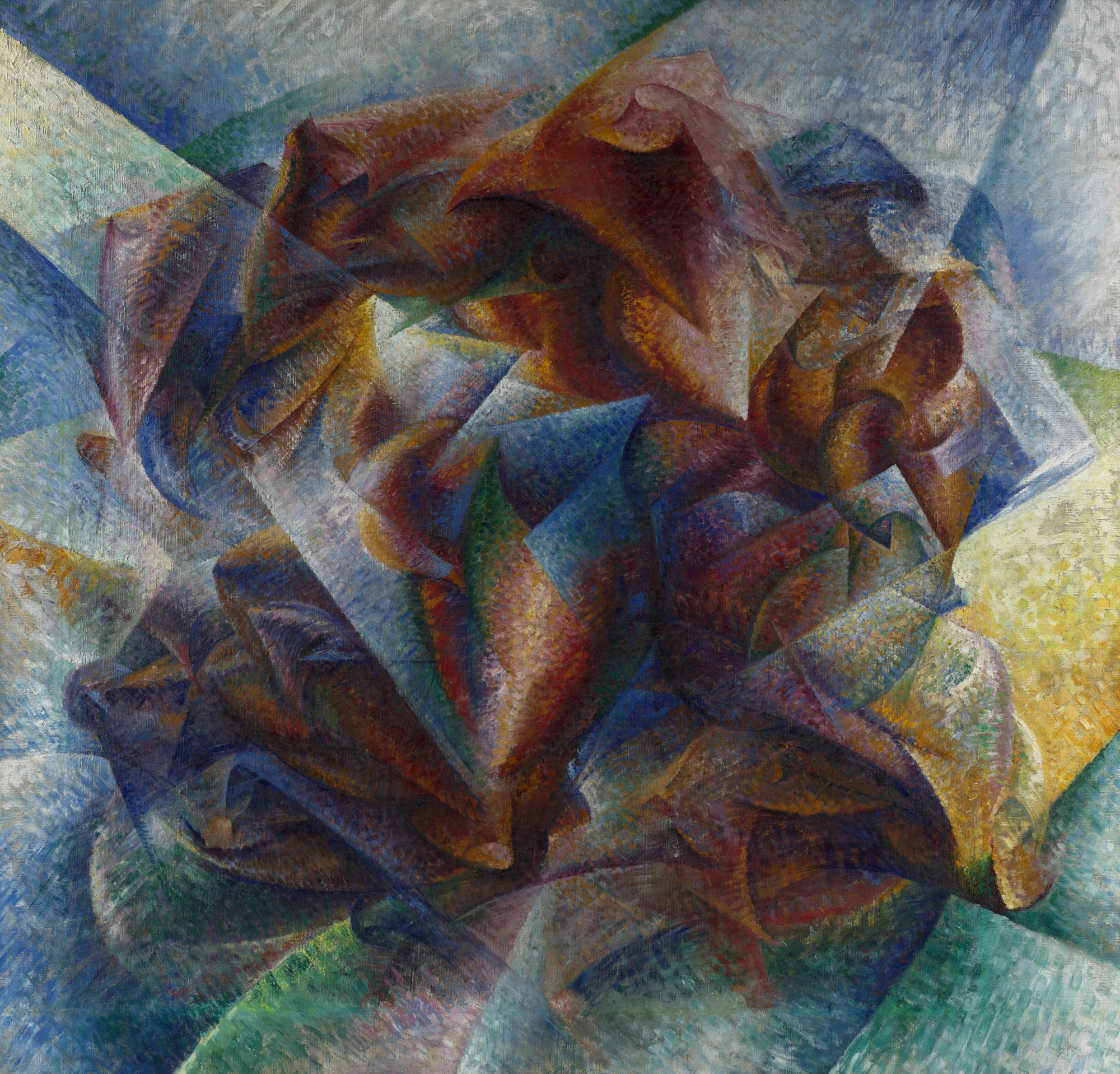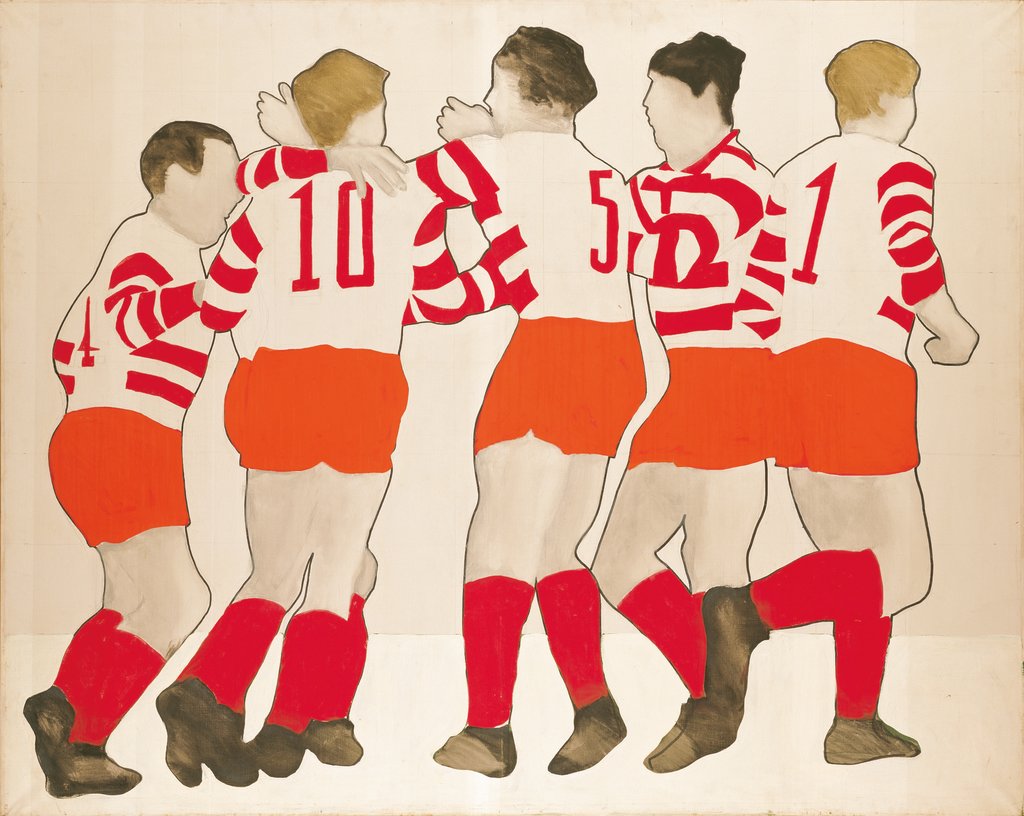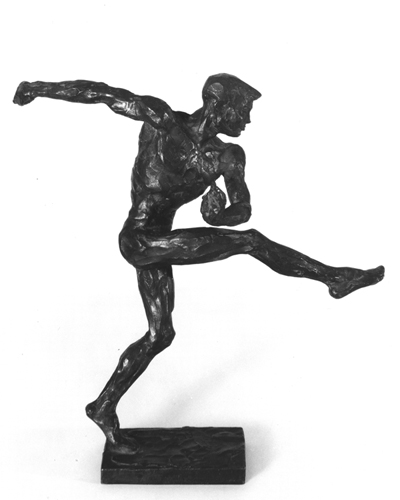Just in time for kick-off, the SCHIRN MAG has compiled a selection of (foot)balls in art. Here are our top ten.
1. Philippe Pareno and Douglas Gordon, Zidane: A 21st Century Portrait (Zidane, un portrait du 21e siècle), 2006
Zinédine Zidane always causes a stir, most recently with his resignation as manager at Real Madrid. Back in 2006, the artists Philippe Parreno and Douglas Gordon dedicated a 95-minute film to the French footballing legend. What was all that fuss about again? Oh yes, a headbutt in another World Cup.
2. Henri Rousseau, The Football Players, 1908
In 1908 football players still wore full-body jerseys, fashionably striped. Yet if you look more closely something’s amiss here: Where exactly is the goal and where is the rest of the team? And, erm, isn’t that handball rather than football? Henri Rousseau, who only began painting in his forties, had an incomparable level of fantasy with which he captured scenes on canvas that drift from reality in a fascinating way. Surreal somehow.

Henri Rousseau, The Football Players, 1908, Image via guggenheim.org
3. Umberto Boccioni, Dynamism of a Soccer Player, 1913
When the tactics don’t work and it gets chaotic on the pitch, things appear similarly dynamic as in Umberto Boccioni’s work. Yet there is order inherent in any chaos. The Italian futurist dissolves objectivity in a simple way: Forms, contours, lines and colors – everything is composed afresh. With this new perspective and way of portraying movement, he was ahead of his time in 1913.

Umberto Boccioni, Dynamism of a Soccer Player, 1913, Image via moma.org
4. Konrad Lueg, Football players, 1963
Football is a team sport – also in the work of Konrad Lueg. Basing this work on a newspaper photograph, Lueg captures these footballers and their team spirit for eternity. With sworn allegiance they put their heads together, concoct their strategy and then head out onto the pitch. All in line with the motto of world champion Lukas Podolski: “We have to roll up our heads – and our sleeves.”

Konrad Lueg, Football players, 1963, © VG Bild-Kunst Bonn, Image via sammlung.staedelmuseum.de
5. Ehfa Hiltbrunner, FC Anabolika, 1997
Doping in football?! Swiss artist Ehfa Hiltbrunner pressed football players into miniature tablet form in her work, entitled “FC Anabolika”. It might well be interpreted as a comment on top-level sport, and almost twenty years later – most significantly before and during major sporting events – doping remains a hotly debated topic that regularly hits the headlines.

Ehfa Hiltbrunner, FC Anabolika, 1997, Image via ka-news.de
6. Maria Lassnig, In the Net, 2001
Who is actually tripping up who here? Is it the goalie tripping the defender, the striker tripping the goalie, or what? Alongside her self-portraits, Austrian artist Maria Lassnig also captured soccer scenes time and again on canvas. Most likely there was no other subject that better represented the feeling of one’s own “Körpergehäuse”, as Lassnig called it, meaning “the body as a shell”.

Maria Lassnig, In the Net, 2001, © VG Bild-Kunst Bonn, Image via metropictures cloudfront.net
7. Olaf Nicolai, Camouflage / Goal Wall 1-3 (Croy, Kleft, Maier), 2001
This puts the goal wall from the current German broadcaster ZDF sports studio to shame, even though it served the artist as a model. Olaf Nicolai actually created his goal wall true to scale, adding its fashionable color scheme. Although it may be all the rage, the camouflage would likely be a strong distraction and thus lead to high levels of frustration.

Olaf Nicolai, Camouflage / Goal Wall 1-3 (Croy, Kleft, Maier), 2001 © VG Bild-Kunst Bonn, Image via stylemiasta.pl
8. Maria Vera Brunner, Two Girls Playing Balls, 1902
It was only in 1982 that the German Soccer Association (DFB) established a national women’s team, which has since won two World Cups and as recently as 2009 was voted Germany’s Team of the Year. In 1902 women in football shirts was unthinkable, so ballgames would have to be in Sunday dress.

Maria Vera Brunner, Two Girls Playing Balls, 1902
9. Renée Sintenis, Football player, 1927
Whistle, kick, and… it’s a goal! During the 1920s sport played a central role in society – particularly among men who wanted to put their strength and their fighting spirit to the test. The German sculptor and graphic designer Renée Sintenis captured this in the figure of the “Football Player”, as well as in his sculptures of “Nurmi the Runner” and the “Boxer”, which was displayed last year in the exhibition SPLENDOR AND MISERY IN THE WEIMAR REPUBLIC.

Renée Sintenis, Football Player, 1927
10. Daniel Spoerri, Fortuna, 1970
What’s spilling out here? It’s neither nouvelle cuisine nor the battered ball from the 1970 World Cup, but rather a work by artist Daniel Spoerri from his “Eat Art” series, for which he filled various objects with dough and then placed them in the oven. Bon appétit...aaaand kickoff!

Daniel Spoerri, Fortuna, 1970 © VG Bild-Kunst Bonn, Image via derbund.ch
